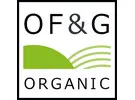 OF&G (Organic Farmers & Growers) has welcomed the latest world organic data[1] published by the Research Institute of Organic Agriculture (FiBL) and IFOAM Organics International. The latest figures show strong worldwide growth in the sector including a 1.7% increase in organically managed land at the end of 2021, with both France and Spain reporting an increase of over 8% compared to 2019.
OF&G (Organic Farmers & Growers) has welcomed the latest world organic data[1] published by the Research Institute of Organic Agriculture (FiBL) and IFOAM Organics International. The latest figures show strong worldwide growth in the sector including a 1.7% increase in organically managed land at the end of 2021, with both France and Spain reporting an increase of over 8% compared to 2019.
A total of 20 countries have now reached 10% or more of all agricultural land under organic management. OF&G believe this shows that a significant number of countries now recognise the environmental and economic benefits that organic production delivers.
“There is clear evidence throughout the World Organic Yearbook of the substantial opportunity that organic represents,” says OF&G chief executive, Roger Kerr. “While organically farmed land in the UK remains ahead of the global average at 2.8%, we lack the ambitions of many of our European neighbours.”
As seen at Biofach 2023, the global organic trade fair which hosted the launch of the latest report, support for organic on the European mainland is seen at the most senior government level. The German Federal Minister for Food and Agriculture, Cem Özdemir, described organic as ‘the decisive response to the climate and biodiversity crises and those with a different view should go to the opticians.’
OF&G say Mr Özdemir’s comments also reflect on the increasing concern around the broader potential greenwashing in agriculture. They warn against the misuse of claims around the term ‘regenerative’ when compared with the clear legally defined and internationally recognised organic standards.
“There is a lot of noise around regenerative, but defining it is a little like trying to nail jelly to the wall. To be clear, all regenerative aspirations are already firmly embedded in international organic principles. Organic is and has been doing the right thing for decades and the latest global data corroborates this position,” says Mr Kerr.
When looking to the future, OF&G believe the UK must stop ‘treading water’ and commit to greater public support for organic considering what’s happening around the world.
“The significant increases in both organic land area and market growth can be seen as a sign of the clear recognition of the value organic can deliver for forward-thinking governments, as seen through such initiatives as the European Farm to Fork Strategy which provides clear guidance on creating a ‘fair, healthy and environmentally-friendly food system’.
“We are being told that our food and farming must adapt to the threat of climate change, whilst reversing the degradation of soils and the loss of biodiversity. Organic is resilient because it is a whole system approach where practices work in synergy with each other to address these challenges simultaneously.
“Public support for organics is not at the level that we would like to see in the UK and we believe the Government can and should offer much greater support with clear and unambiguous messaging. Organic represents a recognisable and viable way for farmers to be rewarded for their efforts while delivering on the Government’s environmental aims,” concludes Mr Kerr.
[1] The World of Organic Agriculture - Statistics and Emerging Trends 2023 (fibl.org)
 For more information:
For more information:
www.ofgorganic.org










